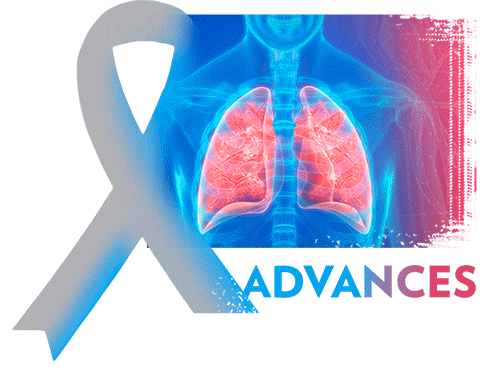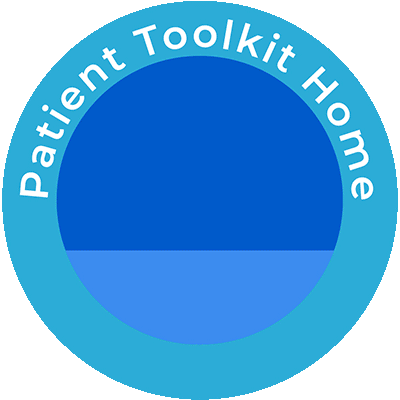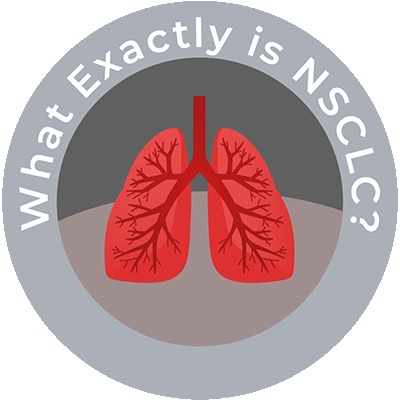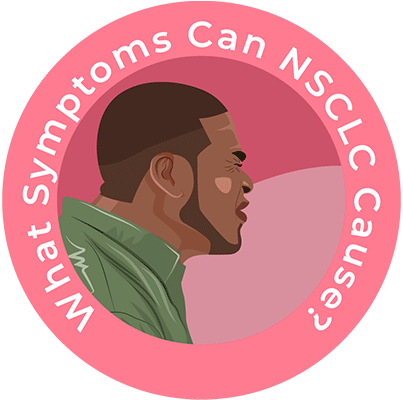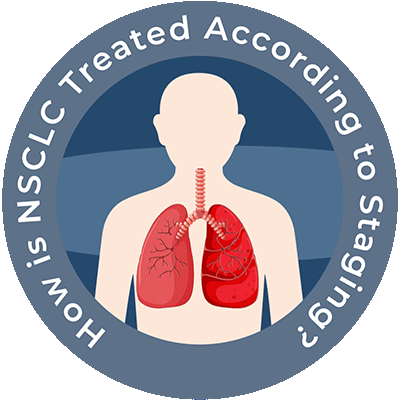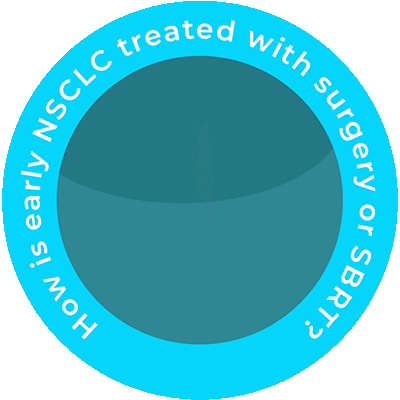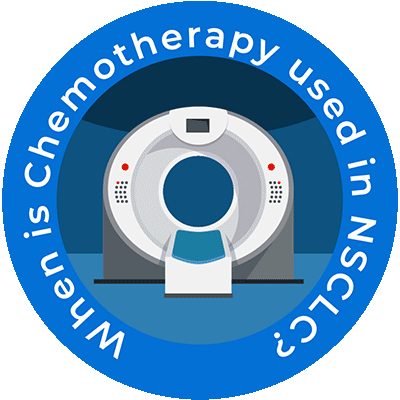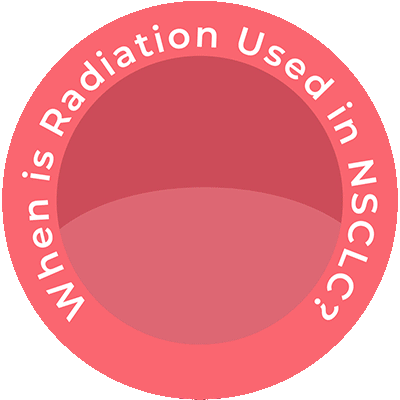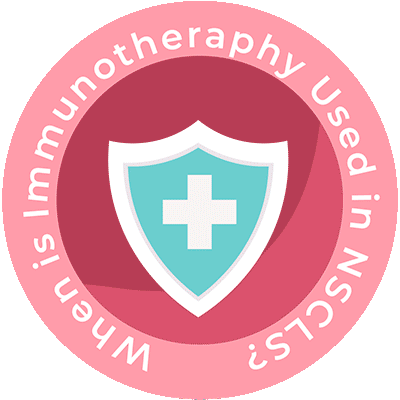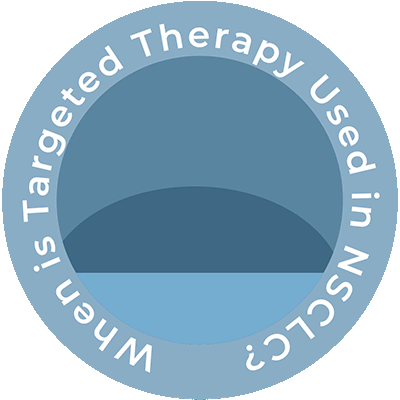When is Immunotherapy used in NSCLC?
What is immunotherapy?
Immunotherapy (IO) is the use of medicines that help your immune system find and kill cancer. One type of IO drug is known as immune checkpoint inhibitors (ICIs).
An important role of the immune system is to keep itself from killing normal cells in the body. To do this, it uses “checkpoints” that allow it to be turned on or off. Cancer cells sometimes use these checkpoints to hide from the immune system.
There are three types of ICIs used to treat NSCLC:
- Anti-PD-1
- Anti-PD-L1
- Anti-CTLA-4
Anti-PD-1 Drugs
There are three PD-1 inhibitors that target PD-1, a protein on certain immune cells (called T cells) that normally help to keep these cells from attacking other cells in the body. By blocking PD-1, these drugs boost the immune response against cancer cells. This can shrink some tumors or slow their growth. These drugs can be used in different situations to treat NSCLC. In some cases, before one of these drugs can be used, lab tests might need to be done on the cancer cells to show they have at least a certain amount of the PD-L1 protein (which would mean these drugs are more likely to work).
- Nivolumab (Opdivo®) may be used alone or in combination with chemotherapy and/or another ICI (eg, Yervoy® [ipilimumab]) to treat lung cancer.
- Pembrolizumab (Keytruda®) can be used (sometimes with chemo) as part of the first treatment in some people with metastatic NSCLC and in people with certain types of advanced NSCLC whose cancer starts growing again after chemo or other drug treatments. For people with stage III NSCLC who cannot have surgery or chemo with RT, pembrolizumab can be given as the first treatment. It may be used alone or with chemo for certain patients with stage 3 or stage 4 NSCLC.
- Cemiplimab (Libtayo®) can be used (sometimes with chemo) as part of the first treatment in some people with metastatic NSCLC. For people with stage III NSCLC who cannot have surgery or chemotherapy with radiation, cemiplimab can be given as the first treatment. It can be used alone or with chemo for certain patients with stage 3 or stage 4 NSCLC.
Anti-PD-L1 Drugs
Two anti-PD-L1 drugs are approved by the United States Food and Drug Administration (FDA) to treat NSCLC.
- Atezolizumab (Tecentriq®) may be used in combination with chemo to treat certain patients with advanced NSCLC or it may be used alone to treat patients with early-stage disease who have received surgery followed by chemo.
- Durvalumab (Imfinzi®) may be used in combination with tremelimumab (Imjudo) and chemo for patients with stage IV NSCLC. It can also be used alone for people with stage III NSCLC whose cancer cannot be removed with surgery and has not gotten worse after they have received chemo with RT (chemoRT).
Anti-CTLA-4 Drugs
CTLA-4 inhibitors boost the immune response by blocking CTLA-4, another protein on T cells that normally helps keep them in check available for the treatment of NSCLC.
- Ipilimumab (Yervoy®) may be used with nivolumab (Opdivo), with or without chemo, to treat some patients with advanced NSCLC. It is not used alone.
- Tremelimumab (Imjudo) may be used with durvalumab (Imfinzi) and chemo to treat some patients with stage IV NSCLC. It is not used alone.
All ICIs are given in the vein. Atezolizumab and nivolumab are also available as skin injections. Depending on the drug, they might be given every 2, 3, 4, or 6 weeks.
Reference
American Cancer Society
https://www.cancer.org/cancer/types/lung-cancer/treating-non-small-cell/immunotherapy.html
